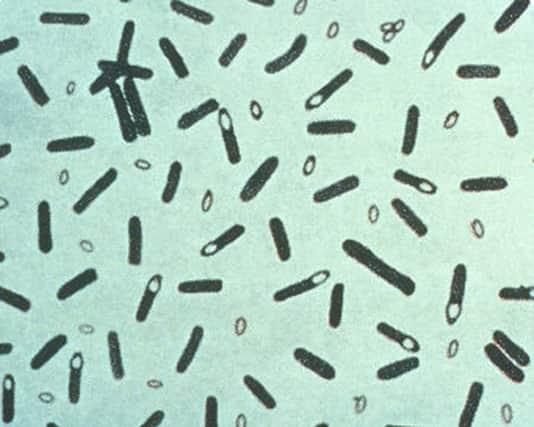‘Cousin’ of superbug could cure peanut allergy


Clostridia encompasses around 100 bacterial species, some of which live harmlessly in the gut. Others are responsible for gangrene, tetanus, botulism, food poisoning and hospital infections caused by clostridium difficile.
The new study suggests that “friendly” clostridia have a unique ability to block the harmful immune response behind food allergies.
Advertisement
Hide AdAdvertisement
Hide AdBetween 6 per cent and 8 per cent of children in the UK are believed to have a diagnosed food allergy.
Since 1990, the number of annual UK hospital admissions due to food allergy reactions has soared by 500 per cent.
Severe food allergy can cause anaphylaxis, an extreme reaction that may prove fatal. Common triggers for anaphylaxis include peanuts, tree nuts such as almonds, walnuts and cashews, sesame, fish, shellfish, dairy products and eggs.
In this latest development, tests on “sterile” mice sensitised to peanuts showed that introducing a clostridia cocktail into their bacteria-free guts reversed their allergy.
Tests indicated that clostridia caused immune cells to produce high levels of a “signalling” molecule known to decrease permeability of the intestinal lining.
This in turn reduced the chances of allergens leaking into the bloodstream.
Lead scientist Professor Cathryn Nagler, from the University of Chicago, said: “We’ve identified a bacterial population that protects against food allergen sensitisation.
“The first step in getting sensitised to a food allergen is for it to get into your blood and be presented to your immune system. The presence of these bacteria regulates that process.”
Advertisement
Hide AdAdvertisement
Hide AdEnvironmental effects on gut flora – including over-use of antibiotics, high fat diets and even infant formula feeding – may be contributing to food allergies by suppressing clostridia.
Mice used in the study were either raised from birth in sterile conditions or treated with antibiotics as newborns to wipe out most of their gut bacteria.
The mice were sensitised by exposing them to peanut allergens, triggering a strong immune response. They produced significantly higher levels of peanut-targeting antibodies than mice with normal populations of gut bacteria.
When clostridia was present, immune cells generated high levels of the protective signalling molecule, interleukin 22 (IL-22). But when IL-22 was neutralised, levels of allergen in the animals’ bloodstreams significantly increased.
The team is now working on turning the discovery into a probiotic food allergy treatment, and has filed a provisional patent.
“It’s exciting because we know what the bacteria are; we have a way to intervene,” said Prof Nagler. “There are, of course, no guarantees, but this is absolutely testable as a therapeutic against a disease for which there’s nothing.”